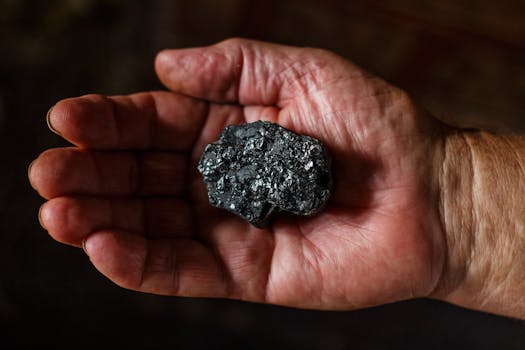+17162654855
+17162654855
NRP Publication News serves as an authoritative platform for delivering the latest industry updates, research insights, and significant developments across various sectors. Our news articles provide a comprehensive view of market trends, key findings, and groundbreaking initiatives, ensuring businesses and professionals stay ahead in a competitive landscape.
The News section on NRP Publication News highlights major industry events such as product launches, market expansions, mergers and acquisitions, financial reports, and strategic collaborations. This dedicated space allows businesses to gain valuable insights into evolving market dynamics, empowering them to make informed decisions.
At NRP Publication News, we cover a diverse range of industries, including Healthcare, Automotive, Utilities, Materials, Chemicals, Energy, Telecommunications, Technology, Financials, and Consumer Goods. Our mission is to ensure that professionals across these sectors have access to high-quality, data-driven news that shapes their industry’s future.
By featuring key industry updates and expert insights, NRP Publication News enhances brand visibility, credibility, and engagement for businesses worldwide. Whether it's the latest technological breakthrough or emerging market opportunities, our platform serves as a bridge between industry leaders, stakeholders, and decision-makers.
Stay informed with NRP Publication News – your trusted source for impactful industry news.
Energy

The allure of untapped mineral wealth hidden beneath the ocean's surface has long captivated the mining industry. Deep-sea mining, the process of extracting mineral deposits from the seabed, promises to provide crucial materials for burgeoning technologies like electric vehicles and renewable energy. However, a growing chorus of voices, encompassing environmental groups, scientists, and even some industry players, suggests that deep-sea mining's projected dominance as a primary source of minerals is, at best, unlikely in the foreseeable future. This stems from a confluence of factors, including environmental concerns, technological hurdles, and the economic realities of operating in such a challenging and remote environment.
One of the most significant obstacles facing deep-sea mining is the considerable environmental risk. The deep ocean is a relatively unexplored ecosystem, teeming with unique and often fragile life forms. Many of these organisms are endemic, meaning they exist nowhere else on Earth. The impacts of deep-sea mining operations on these ecosystems are largely unknown, but potential consequences include:
These environmental concerns have spurred significant international debate, leading to calls for stringent regulations and a precautionary approach to deep-sea mining. The International Seabed Authority (ISA), the UN body responsible for regulating deep-sea mining in international waters, is currently grappling with developing a robust regulatory framework, a process fraught with political and scientific complexities.
Beyond environmental considerations, the technological challenges associated with deep-sea mining are substantial and contribute to its slow projected growth. Operating at such depths presents significant logistical and engineering hurdles:
These technological limitations, coupled with the high initial investment required, mean that deep-sea mining remains a high-risk, high-cost endeavor, unlikely to become a dominant mineral source in the near future.
The economic viability of deep-sea mining is another critical factor hindering its widespread adoption. While the potential for significant mineral extraction exists, the high operating costs and potential environmental liabilities could outweigh the economic benefits, particularly in comparison to established land-based mining operations.
Furthermore, the increasing focus on resource efficiency and circular economy principles is promoting investment in recycling and the reuse of existing resources. This shift is reducing the demand for new mineral supplies, thereby lessening the immediate pressure to exploit deep-sea resources. Recycling critical minerals from electronic waste and end-of-life vehicles is becoming increasingly efficient and cost-effective, offering a more sustainable alternative to deep-sea mining.
In conclusion, while deep-sea mining holds potential for providing crucial minerals, it is unlikely to become a dominant source in the near term. The significant environmental risks, technological challenges, and economic uncertainties associated with this industry warrant a cautious and responsible approach. A thorough understanding of the environmental impacts, the development of robust regulatory frameworks, and further advancements in environmentally friendly mining technologies are crucial before widespread deep-sea mining operations can be considered. The focus should remain on sustainable land-based mining practices, resource efficiency, and the expansion of recycling capabilities to meet global mineral demands while protecting our planet's fragile deep-sea ecosystems. The future of mining likely lies not solely in the ocean depths but also in innovative resource management strategies on land.